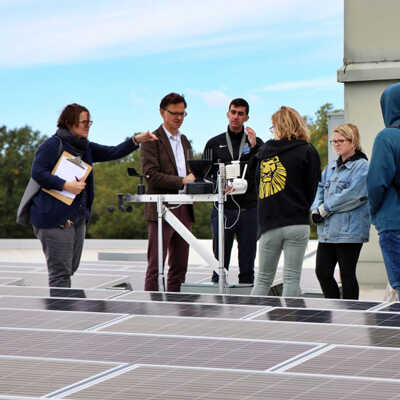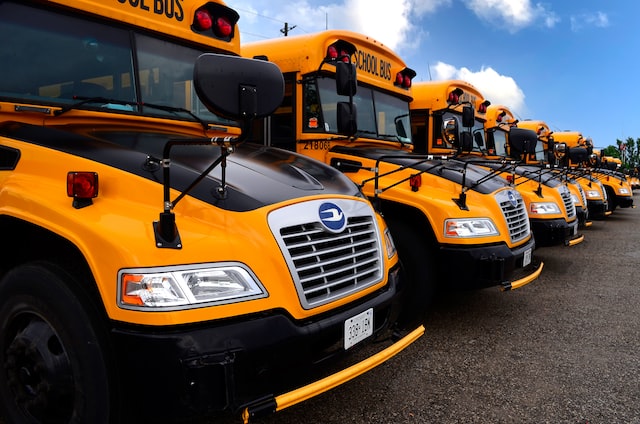Lee County Public Schools
Solar Helps Run 7 Campuses & Could Power EV Buses in the Future
Solar power systems at seven campuses of Lee County Public Schools were installed in two phases in 2023 and 2024 with a total generating capacity of 1.4 megawatts. That’s enough solar power every year to run 140 average U.S. homes, while avoiding 1,520 metric tons of carbon dioxide pollution, the same amount as would be sequestered by 1,525 acres of U.S. forests.
The first round of 967 kilowatts in 2023 put solar power systems on five campuses:
- Lee Career & Technical Center (View live energy data)
- Jonesville Middle School (View live energy data)
- Lee County High School (View live energy data)
- Rose Hill Elementary School (View live energy data)
- Elk Knob Elementary School (View live energy data)
The second round of 451 kilowatts in 2024, supported by a $75,000 incentive grant from the Coalfield Solar Fund, was split between two additional campuses:
- Dryden Elementary School (View live energy data)
- Thomas Walker High School (View live energy data)
On-campus solar has created many opportunities to save money and integrate clean energy education into classroom education and workforce development.
During construction, six Lee County students participated in our pilot workforce development program. This program allowed for students to receive hands-on learning while earning competitive wages and community college credit all while installing solar systems on their own schools. A couple students obrtained full-time jobs after graduating because of their work with the program.
Lee County students also participate in our Throwing Solar Shade® program at no additional cost. Offered in conjunction with National Energy Education Development (NEED), TSS offers a classroom curriculum that complies with Virginia Standards of Learning from grades K-12. The curriculum includes teacher training, lesson plans, and hands-on kits for science experiments on sustainable power.
To extend the value of solar power on campus, Secure Solar Futures also helped the school division obtain its first two electric school buses through the EPA’s Clean School Bus grant program. Then, Secure Solar Futures installed electric chargers at no additional cost. For a completely clean ride, the schools can charge the buses with on-campus solar power.
As part of a pilot program to connect solar power with EV buses, we will work with Lee County Schools to monitor and optimize performance of the bus batteries and charging.
The Challenge
High electric bills & need for job opportunities for students
The Result
Cost savings & workforce development



